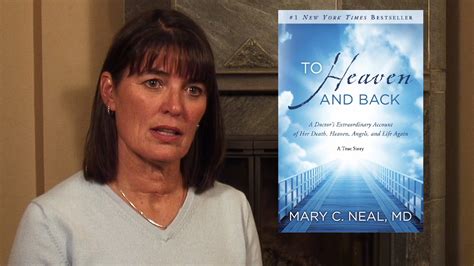A Quote by Stephen J. Dubner
When certain people have certain beliefs, they can be unyielding, and that's really what faith is. There's a large place in the world for faith, but when it comes to a scientific, political, and economic issue, dogma is not a very good place to start.
Related Quotes
If faith is what you have to go on, if faith is the link between your beliefs and the world at large, your beliefs are very likely to be wrong. Beliefs can be right or wrong. If you believe you can fly, that belief is only true if indeed you can fly. Somebody who thinks he can fly, and is wrong about it, will eventually discover there's a problem with his view of the world.
Churches provide a place of gathering for people who share common beliefs, support and encouragement for each other in faith, a place to find insight into and teaching about God's Word, and they provide a time and place where people can leave the world behind and focus only on their spiritual relationship with God.
Not only the studying and writing of history but also the honoring of it both represent affirmations of a certain defiant faith - a desperate, unreasoning faith, if you will - but faith nevertheless in the endurance of this threatened world - faith in the total essentiality of historical continuity.
I do believe that nice religious people make the world safe for extremists by teaching us [...] that faith is a virtue, teaching us that there's something good about holding beliefs without any substantiating evidence. Once you buy into that, [...] then the door is opened to extremists who defend their extremism by saying, 'Oh well, it's my faith, you can't touch it, you can't criticise my faith, I don't even need to defend it because faith is faith.'
For film, you know, the Tarantinos and Nolans of the world who are very focused on a certain kind of film aesthetic and a certain kind of presentation, to be honest, that comes from a place of privilege. It comes from a place of always having access to such, but when you ain't never - you can't see it because you can't even get to it.
It's enough to have faith in one aspect of God. You have faith in God without form. That is very good. But never get into your head that your faith alone is true and every other is false. Know for certain that God without form is real and that God with form is also real. Then hold fast to whichever faith appeals to you.
Take the life issue. This issue requires a president and an administration leading our nation to understand the importance of life. This whole faith-based initiative really ties into a larger cultural issue that we're working on. It begins to affect the life issue, as well as the human dignity issue, because when you're talking about welcoming people of faith to help people who are disadvantaged and are unable to defend themselves, the logical step is also those babies.
The ex-Presidential situation has its advantages, but with them are certain drawbacks. The correspondence is large. The meritorious demands on one are large. More independent out than in place, but still something of the bondage of the place that was willingly left. On the whole, however, I find many reasons to be content.
Are we using science in ways that it wasn't intended to, in which case we should be a little careful, or are we using faith in ways that faith wasn't really designed for? There are certain questions that are better answered by one approach than the other, and if you start mixing that up, then you end up in ... conflict.
Faith is indeed intellectual; it involves an apprehension of certain things as facts; and vain is the modern effort to divorce faith from knowledge. But although faith is intellectual, it is not only intellectual. You cannot have faith without having knowledge; but you will not have faith if you have only knowledge.

































